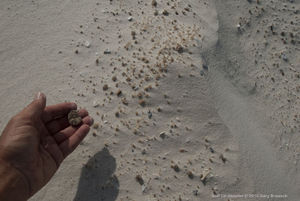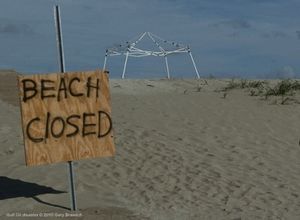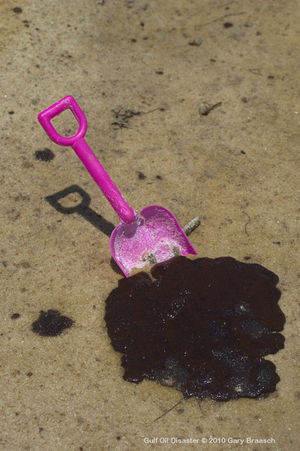Information for clinicians, parents, and community members on the oil spill affecting the Gulf Coast
The American Academy of Pediatrics (AAP), the Pediatric Environmental Health Specialty Units (PEHSU), the American Academy of Clinical Toxicology (AACT), and the American College of Medical Toxicology (ACMT) encourage families, pediatricians, and communities to work together to ensure that children are protected from exposure to environmental and other hazards in the aftermath of the oil spill (Deepwater Horizon oil spill ).
Contents
- 1 Children are at Risk
- 2 About Oil
- 3 Steps to Take to Protect Children from Hazards
- 4 Frequently Asked Questions
- 4.1 What if my child is exposed to oil?
- 4.2 What if there is a bad smell or odor?
- 4.3 Should I wear a face mask of some kind?
- 4.4 My child has asthma. What should I do?
- 4.5 What about seafood contamination?
- 4.6 Is it safe for my children to play on the beach or go in the ocean?
- 4.7 How long should children be allowed to play outdoors when we can smell the oil?
- 4.8 Is my water safe to drink?
- 4.9 Members of my family are working on clean-up. Are there precautions we should take?
- 5 Additional Resources
Children are at Risk
Children are more easily exposed to environmental pollutants than adults. They eat, drink, and breathe more than adults on a pound for pound basis. A child’s nose and mouth are closer to the ground than the nose and mouth of an adult, so children more easily breathe-in pollutants that build-up in air close to the ground. Because children play on the ground, they are more likely to have skin contact with pollutants than adults. Children can be exposed to contaminants if they put contaminated hands in their mouth, or if they handle and eat food with unwashed hands. Some types of toxins can be absorbed through the skin or off of clothing. Compared to older children, toddlers get more soil and other contaminants on their hands and clothes from crawling. Toxic exposures can have lasting negative effects on children as they grow and develop. A child’s exploratory behavior often places them in direct contact with materials that adults would avoid. Following an oil spill, particular attention should be paid to physical dangers, water contamination, and exposure to substances or situations that could potentially harm children. This situation may become more complex if there are hurricanes (Hurricane), storms, or floods.
About Oil
Crude oil is a naturally-occurring liquid made of hydrocarbons and other organic compounds. Oil and water don’t mix well. The oil usually ends up floating on top of the water. Compounds called dispersants (Dispersants: a guided tour) are sometimes used to help the oil mix with saltwater and get it to sink.
The oil washing up on shore is referred to as weathered oil. This means it has not only been mixed with seawater but has also been exposed to sunlight and air. It is not like crude oil coming out of the ground or refined oil like motor oil. Oil is toxic, yet understanding the potential risks to children is difficult because so little is known about the toxicity of weathered oil and the resulting weathered oil mixed with sand, which are often called “tar balls.” According to the National Institute for Occupational Safety and Health (NIOSH), skin and respiratory problems were the most common complaints from workers who cleaned up previous spills, but little is known about long-term effects.
Steps to Take to Protect Children from Hazards
- Keep children away from the oil.
- Children should not be allowed to play in or around areas where the water or beach contains oil or sludge. Parents should check with local health officials to determine which beaches or shore areas are affected.
- Children should not be involved in swimming, boating, or fishing activities in areas known to have oil or sludge contamination.
- Adults should handle clean-up efforts, including issues related to fish, birds, and other wildlife exposed to the oil.
- Children, including teens, should not be involved in clean-up. Children should be the last group to return to areas impacted by oil or other toxic substances.
- Consider potential for unknown risks. There may be unknown risks or health effects from exposure to the oil or other toxic agents.
- Food and drinking water sources and supplies could become contaminated. Residents should be attentive and follow any health alerts or advisories from local authorities.
- Neither children nor anyone else should eat fish or seafood from oily waters.
- Keep up to date with latest information on what to do. The following resources can help families understand and follow environmental testing results and health recommendations.
- The US Environmental Protection Agency (US EPA) is testing air, water, and soil/sediment in some affected areas for various substances ranging from volatile organic compounds or VOCs to particulate matter to sulfur-containing compounds. These substances could cause various health effects depending upon the level of exposure, the duration of exposure, and the susceptibility of the individuals exposed.
- The Centers for Disease Control and Prevention (CDC) is tracking potential health effects and offers resources specific to the 2010 oil spill.
- Remember that children may be at high risk for exposures and have lasting negative effects from exposures to contaminants. Parents and caregivers should follow the state health department, local health department, and CDC reports and recommendations closely and should urge their children to do the same.
- State Health Department web sites:
- Local Poison Control Centers (1-800-222-1222) are available to respond to questions related to acute exposures.
- The PEHSU network (888-347-4976) is available to assist with additional questions, particularly those regarding low dose, long term exposures.
- Information and links to resources are available via the AAP web site.
- Talking with children and helping them to cope is important.
- When children are exposed to situations that are beyond the scope of their usual experience, they may have difficulty understanding and coping with the events.
- Talking to children about the oil spill can help them understand the situation, including the risks they may be exposed to on a day-to-day basis and what they can do to keep themselves safe.
- Some children may develop a range of stress-related symptoms. For example, it may be upsetting for them to see dead or oil-covered birds or animals. Parents should watch for signs of stress such as sleep difficulties, behavior pattern change, change in school performance, increased fighting with siblings, and substance abuse. It is important to make your child’s doctor aware if your child or teen develops any of these problems. Adults may need to take steps to promote adjustment and help children cope. For tips, please click here.
- Raising a family and taking care of children is challenging, especially during tough economic conditions. Children may be worried that their parents will lose their job or their home lives will be disrupted. Children can sense stress and become anxious or upset if no one communicates with them. Adults should talk to kids about the economy and the potential economic effects of the oil spill. For tips, please click here.
- Communities may need to designate or identify outdoor areas (parks, playgrounds, yards, etc.) that are clean and free from safety and environmental hazards. This would include ensuring that routes to and from living, learning, and playing places are cleaned and made free of safety and environmental hazards.
Frequently Asked Questions
What if my child is exposed to oil?
Remove the child from the area where they were exposed to the oil.
Wash hands with soap and water after oil contact. If necessary, clean off oil with baby oil or suntan lotion. If these are ineffective, try a low-toxicity product such as a citrus-based cleaning agent that states it is safe for use on skin. Do not use gasoline or other dangerous products such as paint thinner or turpentine.
Watch for skin or eye irritation. If this occurs, rinse thoroughly with clean water and seek medical attention.
What if there is a bad smell or odor?
For many substances related to the spill, one may be able to detect an odor even when those substances exist at levels below those shown (primarily in adults) to be harmful. Therefore, smelling a bad odor does not automatically mean that there is a health risk. However, the chemicals in the oil can irritate the eyes, nose, and throat even at low concentrations. If you smell odors, you should report that information to authorities. For now, if the smell bothers you, stay indoors, close the doors and windows, and turn on your central air conditioning. If you have a window air conditioner instead of a central unit, it may be better not to use the air conditioner or to turn the settings to the recirculation mode, which closes the outside ventilation feature.
There is very little information on these exposures to children, particularly over the long term. Children with chronic respiratory conditions like asthma may be more vulnerable. The most recent data, as of June 2010, indicates that air levels of volatile organic compounds, semi-volatile organic compounds, and sulfur containing compounds are below occupational health references but may be above some individual’s odor threshold. In addition, these levels may change over time as conditions in the gulf are changing, so recheck monitoring information often.
Should I wear a face mask of some kind?
Wearing a face mask (surgical mask, N95 respirator, etc.) is not recommended and will not help with the smell. The chemicals that can be smelled from the oil spill are called volatile organic compounds or VOCs, and can only be filtered by an activated charcoal mask. If an adult is involved with clean-up, they should follow the protection and mask recommendations of the authorities involved with the clean-up. (CDC Interim Guidance for Protecting Deepwater Horizon Response Workers and Volunteers)
My child has asthma. What should I do?
Children with asthma may be more sensitive to health effects from breathing polluted air than others. In general, consult with your doctor. As always, check with your local health department for ozone alert and other routine air pollutant levels, as well as allergen levels, if your child has these as potential triggers. In addition, check as described above for any oil spill-specific coastal air monitoring data. When in doubt, avoid directly-affected beach and coastal areas.
What about seafood contamination?
Crude oil has the potential to taint seafood with flavors and odors caused by contamination with hydrocarbon chemicals and to make seafood unsafe to eat. Federal and State authorities are monitoring the waters from which seafood is harvested and they have already closed some areas to commercial fishing. It is very important to learn about changing closures and to strictly obey all fishing and oyster bed restrictions. As of June 2010, seafood caught in areas that remain open for fishing is recognized by public health and food experts as being safe to eat. However, to be safe, follow the usual rules of not eating food that has an unpleasant or unusual smell, or that tastes differently than expected.
Is it safe for my children to play on the beach or go in the ocean?
Oil is coming up on some beaches around the Gulf coast, but most beaches are still free of contamination. Before heading to the beach, check with local or state authorities about beach conditions. The EPA and local authorities are closely monitoring the situation.
Common sense would suggest that beachgoers should avoid swimming in water where oil can be seen. Remember that children tend to swallow water when they swim, unlike most adults. Crude oil contains many toxic chemicals, including volatile and semi-volatile organic compounds. Fresh crude oil is a skin irritant that may cause redness, burning, and even ulcers with prolonged contact. Fortunately, the more toxic chemicals tend to disperse and evaporate, and the spill is far off shore. Most of the oil washing up along the coast has been “weathered” into tar balls that are less toxic. Though the oil washing up on the beaches probably isn't as harsh as it could be, it's still a good idea to keep it off your skin. Discourage your children from touching or playing with any tar balls or oil slicks. Not surprisingly, children can be more vulnerable to environmental contaminants than adults.
How long should children be allowed to play outdoors when we can smell the oil?
Some children may be more sensitive to health effects than others, particularly children with asthma. As long as public health authorities continue to report extremely low levels of air contaminants, outdoor play is appropriate. Each child, however, should be considered individually. Parents should bring children indoors if the odors are irritating.
Is my water safe to drink?
The oil spill is currently not expected to affect drinking water. Experts do not expect oil to migrate far enough up the Mississippi River to the location of drinking water intakes, but this situation could change. Pay attention to information being distributed by local authorities and water utilities. Oil is not expected to impact household wells. If you detect any changes in the taste or smell of your water, contact your water supplier. If you have a private well, consider getting your water tested and seek a different source of drinking water in the unlikely event of contamination.
Members of my family are working on clean-up. Are there precautions we should take?
There is no indication of exposures being brought home on clothes from clean-up workers. However, simple precautions can be taken. If workers have been wearing protective gear, they should remove it before entering either their home or family car. If they are not wearing protective gear, whenever possible, workers should shower and change clothes before entering the family car or home. When this is not possible, they should shower immediately upon returning home and their work clothes should be washed separately from family laundry. (CDC Interim Guidance for Protecting Deepwater Horizon Response Workers and Volunteers)
Additional Resources
- What You Can Do (US Environmental Protection Agency)
- CDC (Centers for Disease Control and Prevention)
- Food and Drug Administration (FDA)
- Deepwater BP Oil Spill and Federal Response (White House)
- Pediatric Environmental Health Specialty Units
- American Academy of Pediatrics: Children and Disasters
August 2010
Disclaimer: Based upon interpretation of the current literature, the organizations listed above are providing this guidance for persons who wish to take a precautionary approach to personal decisions, and is not meant to substitute for personal medical consultation with your health care provider.
This material was developed in part by the Association of Occupational and Environmental Clinics (AOEC) and funded under the cooperative agreement award number 1U61TS000118-01 from the Agency for Toxic Substances and Disease Registry (ATSDR).
Acknowledgement: The U.S. Environmental Protection Agency (EPA) supports the PEHSU by providing funds to ATSDR under Inter-Agency Agreement number DW-75-92301301-0. Neither EPA nor ATSDR endorse the purchase of any commercial products or services mentioned in PEHSU publications.



